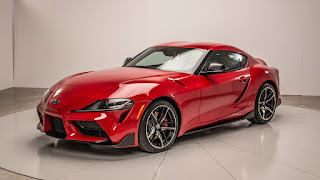An ongoing trend in the automotive industry is the use of alternate
fuel types and methods of powering vehicles that are more environmentally conscious.
Air pollution is an ongoing issue that affects environments and people and
needs to be mitigated to improve the health of ecosystems and people at large.
While many companies are engineering more efficient electric Orlando Toyota
vehicles, Toyota has been developing hydrogen-based fuel technology in addition
to more hybrid options for existing vehicles. Hydrogen fuel cell technology is
currently in use in the Toyota Mirai and is now being extended to be used in
use with hydrogen trucks. This prototype concept is a partnership venture between
Toyota and Paccar and was unveiled at the Consumer Electronics Show in Las
Vegas recently. Toyota of Orlando has the latest details on these hydrogen trucks.
The ins and outs of hydrogen trucks and hydrogen technology
Toyota and Paccar (one of the largest manufacturers of
medium and heavy-duty commercial vehicles) have recently partnered to bring new
hydrogen trucks to the twin ports in Los Angeles and Long Beach, California.
These two regions currently suffer an endemic of air pollution due to 16,000 diesel-fueled
vehicles servicing there. Hydrogen fuel cell technology offers a clean
alternative that produces no harmful emissions.
Using hydrogen trucks also provides several advantages over
using gasoline and even battery powered engines. Filling a hydrogen fuel tank
on a vehicle like the Orlando Toyota Mirai only takes about five minutes and
provides a range of around 300 miles. While filling a fuel cell tank in a class
8 sized hydrogen truck would take significantly more time, it’s still shorter
compared to the time it takes to recharge a truck with a large battery. Hydrogen
trucks and Orlando Toyota vehicles are much quieter than vehicles with gasoline
powered engines and would use a four-speed transmission rather than an 18-gear
transmission typically used in Orlando Toyota class 8 trucks.
These trucks will maintain the same payload capacity of a
typical diesel Orlando Toyota cargo truck and a similar fuel-efficiency metric compared
to their internal combustion counterparts. The vehicles would achieve around 5 –
7 mpg (in terms of hydrogen consumption) and only produce a byproduct of water
vapor.
However, there are a few issues with using hydrogen-based technology to power Orlando Toyota vehicles. The distribution networks for hydrogen
don’t exist like they do for gasoline and diesel fuel. Because of this hydrogen
fuel is only available in a few select areas of California and it’s uncertain
whether or not this technology will make its way to the rest of the United
States. Hydrogen is also not in most plentiful supply and needs to be harvested
by either splitting water into its composition elements (two parts hydrogen and
one part oxygen) or harvesting it from natural gas. Both of these processes are
energy intensive and require specialized equipment and could result in carbon
dioxide emission.
Shop hybrid vehicles today at Toyota of Orlando
While it will be some time before hydrogen-based fuel vehicles
make their way to the dealership, you can still shop more energy-conscious vehicles today at Toyota of Orlando! Check out our inventory anytime online or
visit us at 3575 Vineland Road seven days a week.





